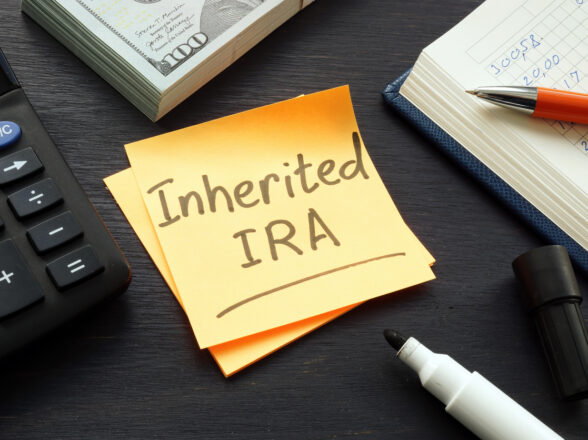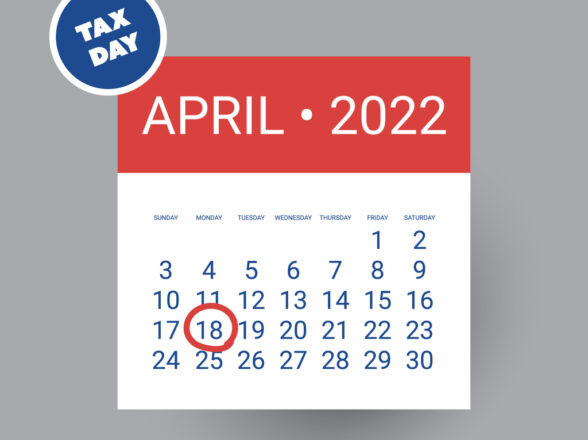Blog
From Windfall to Financial Freedom: Strategies for Managing Your Inheritance

Inheritance 101: How to Manage Your Windfall
Inheritance and windfall are two terms that refer to a sudden, unexpected influx of money. An inheritance is a sum of money or property from a deceased relative’s estate.
On the other hand, a windfall is a sudden, unanticipated gain, such as winning a lottery or receiving a bonus at work.
Receiving a large sum of money in either of these ways is different from other sources of income, such as a salary or investment returns, because it is not a regular, predictable source of funds. It can be exciting and potentially life-changing, but it also requires careful planning and decision-making to manage the funds wisely.
This article will explore the emotional and financial implications of receiving an inheritance or windfall and provide initial steps for managing and allocating these funds.
Emotional and Financial Implications of Receiving a Windfall or Inheritance
Receiving an inheritance or windfall can be a complex and emotional experience. Many people may feel excitement and relief at the sudden influx of financial resources, especially if they have been struggling financially.
Others may feel overwhelmed by the responsibility of managing a large sum of money, or they may experience feelings of guilt or sadness if the inheritance is connected to the loss of a loved one. It is essential to recognize and address these emotions and to seek support from friends, family, or professionals if needed.
In addition to the emotional implications, receiving a large sum of money can also have a significant financial impact. For some people, the influx of funds may lead to increased spending and a temptation to indulge in luxury purchases.
However, it is essential to resist this temptation and carefully consider how best to allocate the funds. Making a wise investment can provide opportunities for long-term financial security and growth, but it also carries risks the recipient needs to evaluate carefully.
So how should you manage a windfall?
Creating a plan for managing and allocating the funds is crucial to ensuring the effective use of the money. By creating a plan and making informed decisions, you can maximize the potential benefits of receiving an inheritance or windfall and ensure the funds are used in a way that aligns with your goals and values. Here are some tips to help you manage your windfall:
Take Time to Consider Your Options
It’s natural to want to rush into making decisions about managing your windfall, but taking time to consider all the options can help you make better choices. Taking the time to carefully evaluate your financial situation and making thoughtful decisions about how best to use this money can help you avoid making rash or impulsive choices.
It can also provide the opportunity to consult with financial advisors, attorneys, or other trusted professionals who can provide expertise and guidance. These professionals can help you evaluate your financial goals and create a plan for managing and allocating funds in alignment with those goals.
Giving yourself time allows you to research, explore different investment options, and learn about potential risks and rewards. As a result, you can make more deliberate decisions that minimize the risk of making poor choices.
Create a Budget to Manage Your Spending
A budget is a plan for managing your income and expenses, and it helps you avoid spending more money than you have. In other words, it’s a way of ensuring that your spending is within your income.
You must gather information about your income and expenses to create a budget. This can include your regular sources of income, such as salary or investment returns, and any one-time income, such as the inheritance or windfall. You will also need to identify your expenses, such as rent or mortgage payments, utilities, food, and other necessary costs.
Once you have this information, you can create a plan for allocating your money. This may involve setting aside money for short-term and long-term savings goals, such as building an emergency fund or saving for retirement. It may also include creating a plan for spending money, such as paying off debt or making necessary purchases.
A budget can help you plan your spending to have enough money to meet your financial obligations. By creating a budget, you can avoid overspending and make smart financial decisions about using the inheritance or windfall.
Consider Setting Aside Funds for Short-Term and Long-Term Savings Goals
After receiving a large sum of money, such as an inheritance or windfall, one of the initial steps is to consider setting aside a portion of the funds for short-term and long-term savings goals. This step ensures you have a financial safety net that safeguards you for the future.
Short-term savings goals are those you can achieve within a few years or less. Examples include:
- Building an emergency fund.
- Saving for a down payment on a house.
- Saving for a vacation.
Setting aside money for short-term savings goals can provide peace of mind and financial security, as it can help you cover unexpected expenses.
Long-term savings goals refer to those that will take longer to achieve, such as retirement or paying for a child’s education. Setting aside money for long-term savings goals can provide long-term financial growth and security opportunities. It is one of the ways to plan for and secure your future.
Both long-term and short-term goals are essential, as they can provide a financial safety net during economic hardship.
Be Wise With Your Windfall Investments
Investing in your windfall can help you maximize the potential growth of the funds and achieve your financial goals.
When investing, it is essential to consider factors such as:
- Your risk tolerance: This is the willingness to take on financial risk
- Time horizon: This refers to the amount of time you have to invest, such as a few years or several decades.
- The potential return on investment: This refers to the potential growth or income you may receive from your investments.
Considering these factors can help you make informed decisions about how to invest the money. For example, if you have a low-risk tolerance, you may want to invest in lower-risk investments, such as government bonds or savings accounts.
If you have a longer time horizon, you may want to invest in higher-risk investments, such as stocks, that have the potential for higher returns over the long term. Either way, it’s essential to understand the risks and rewards of each investment so that you can make an informed decision about what type of investment is right for you.
Understand the Tax Implications of the Windfall
Depending on the inheritance’s size and the assets’ nature, you may be required to pay taxes on the money you receive.
For example, when you inherit a large estate, you’re subject to income taxes on the amount you receive. The IRS considers all forms of inheritance to be taxable income. So you will be expected to pay taxes on any money left over after paying off any debts or outstanding bills your loved one had when they passed away.
If the person who passed away left behind estate assets like property or investments, those assets are subject to capital gains tax and may also be subject to income taxes, depending on how much they were worth at the time of death.
It is essential to consult with a tax professional to understand your tax obligations and ensure that you comply with the law. A tax professional can help you understand the tax implications of an inheritance or windfall and advise you on how to use it properly while minimizing your potential liabilities.
Seek Professional Financial Advice
Consulting with a financial advisor can be invaluable in helping you create a plan for managing and allocating the funds. A financial advisor can provide expertise, guidance, and support as you navigate the complex process of managing a large sum of money.
Financial advisors can help you structure your investments and determine the best ways to use the money. They can also assist with estate planning, tax planning, and other financial aspects of your life.
A windfall can be an excellent opportunity to take stock of your financial situation and make changes to help you achieve your goals. With the help of a financial advisor, you can create a plan for managing the money that will help you achieve your goals and dreams.
Consider the Impact on Personal Relationships
Receiving an inheritance can also have an impact on personal relationships. For example, if you are the sole beneficiary of your relative’s estate, this may cause resentment or jealousy among other family members not included in the will.
In some cases, an inheritance can also cause conflict within a family. For example, disagreement about how the assets should be managed or distributed can lead to strained relationships and even legal disputes.
It is vital to communicate clearly with your family members and try to reach a consensus about handling the inheritance to avoid these conflicts.
It is also helpful to involve a neutral third party, such as a financial advisor or mediator, to help facilitate these discussions and to resolve any conflicts that may arise.
By addressing these issues upfront and openly, you can help preserve and strengthen your personal relationships and ensure that your inheritance is managed in a fair and equitable way to all concerned.
Make the Most of Your Inheritance
Managing an inheritance can be a challenging but rewarding process. By taking the time to understand your options and seek professional advice, you can create a plan that helps to maximize the benefits of your inheritance and set yourself up for a secure and stable future.
Some key strategies for achieving financial freedom include setting clear goals, diversifying your investments, and avoiding impulsive decisions. By following these strategies, you can turn your windfall into a lasting source of financial security and independence.
































































































































